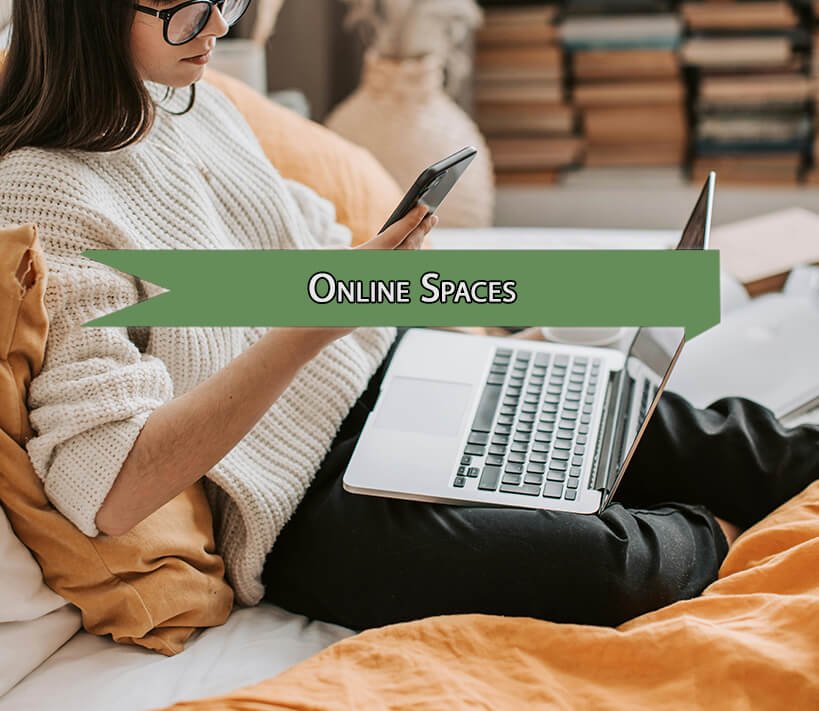We live in a world where we rely on the internet for almost everything, whether it is finding solutions to work-related problems, looking up a recipe, exploring the latest fashion trends, or seeking comfort during emotional lows. Online Spaces have become digital mirrors of our daily lives, offering us endless streams of information, entertainment, and connection. However, this constant connectivity comes at a cost: it can lead to anxiety, burnout, unhealthy comparisons, and feelings of isolation.
Our digital lives are not going anywhere, but with conscious habits, we must ensure they help us thrive rather than drag us down. At Psychoaura, we believe in transforming your online experience into a source of empowerment and emotional balance. Here are some practical, research-backed, and user-friendly tips designed to help you make your screen time truly beneficial for your mental health, so the internet becomes a tool for growth, not stress.
1. Create Boundaries with your Devices
Online spaces are open 24/7, but that does not mean you have to be available all the time. The absence of boundaries can lead to digital burnout, sleep disturbances, and increased anxiety. Try setting personal rules, like avoiding social media after 9 PM. Use focus apps to limit distractions, and make it a habit to take regular digital breaks. Even staying offline for just 24 hours on a Sunday can refresh your mind. Use that time to connect with your family, make plans to meet friends, and enjoy real-life gatherings. You do not need to vanish from the internet, disconnect long enough to reconnect with yourself.
2. Be the Gatekeeper of your Feed
Algorithms serve what we engage with. If you are constantly shown content that makes you feel anxious, envious, or inadequate, it is time to take control. Curate your digital space the way you would your home, clean, comfortable, and inspiring. Unfollow accounts that leave you feeling drained. Seek out creators, pages, and communities that educate, uplift, and empower. Whether it is body-positive influencers, mental health educators, or wholesome animal videos, fill your feed with joy, not judgment.
3. Be Mindful of What You Post and Why
Social media can be a space for expression, but it is easy to fall into the trap of seeking validation through likes and comments. Before posting, ask yourself: Are you sharing to connect truly or to compare? To impress or to express? When you post with honesty instead of perfection, you create authenticity in your digital space, and this authenticity, even in online settings, helps reduce stress and fosters genuine connections.
4. Turn Your Phone into a Wellness Toolkit
Our phones can either become anxiety machines or powerful self-care tools, the choice depends on how we use them intentionally. So, download apps that support meditation, mood tracking, and journaling. Set gentle reminders for deep breathing, staying hydrated, and taking gratitude pauses. Make sure your phone works for your mind, not against it. Also, organize your home screen with helpful apps and move time-wasting ones out of sight. With this approach, you can transform your phone into a tool that supports your well-being instead of harming it.
5. Engage in a Positive Communities
The internet is not just endless memes or drama, it can also be a space for connection and healing. Consider joining modern communities that focus on mental health, offer tips to improve physical well-being, and share hobbies or meaningful experiences. These spaces can include mental health platforms, supportive Facebook groups, and online forums that offer solidarity and helpful advice. They offer encouragement, motivation, and a sense of belonging that can have a profoundly positive impact on your mental state. However, keep in mind that not all communities are created equal, some may uplift you, while others may increase anxiety or spread misinformation. Choose mindfully.
Conclusion
The internet, like any powerful tool, can either enrich or overwhelm our lives, it all depends on how we choose to use it. By setting healthy boundaries, curating our digital spaces, being intentional with our posts, turning our devices into wellness allies, and engaging in supportive communities, we can shape an online environment that nurtures rather than drains us. Mental health is not separate from our digital habits, it is deeply intertwined. So, lets be mindful, proactive, and compassionate toward ourselves as we navigate the online world. With small, consistent changes, your screen time can become a source of growth, calm, and genuine connection.




